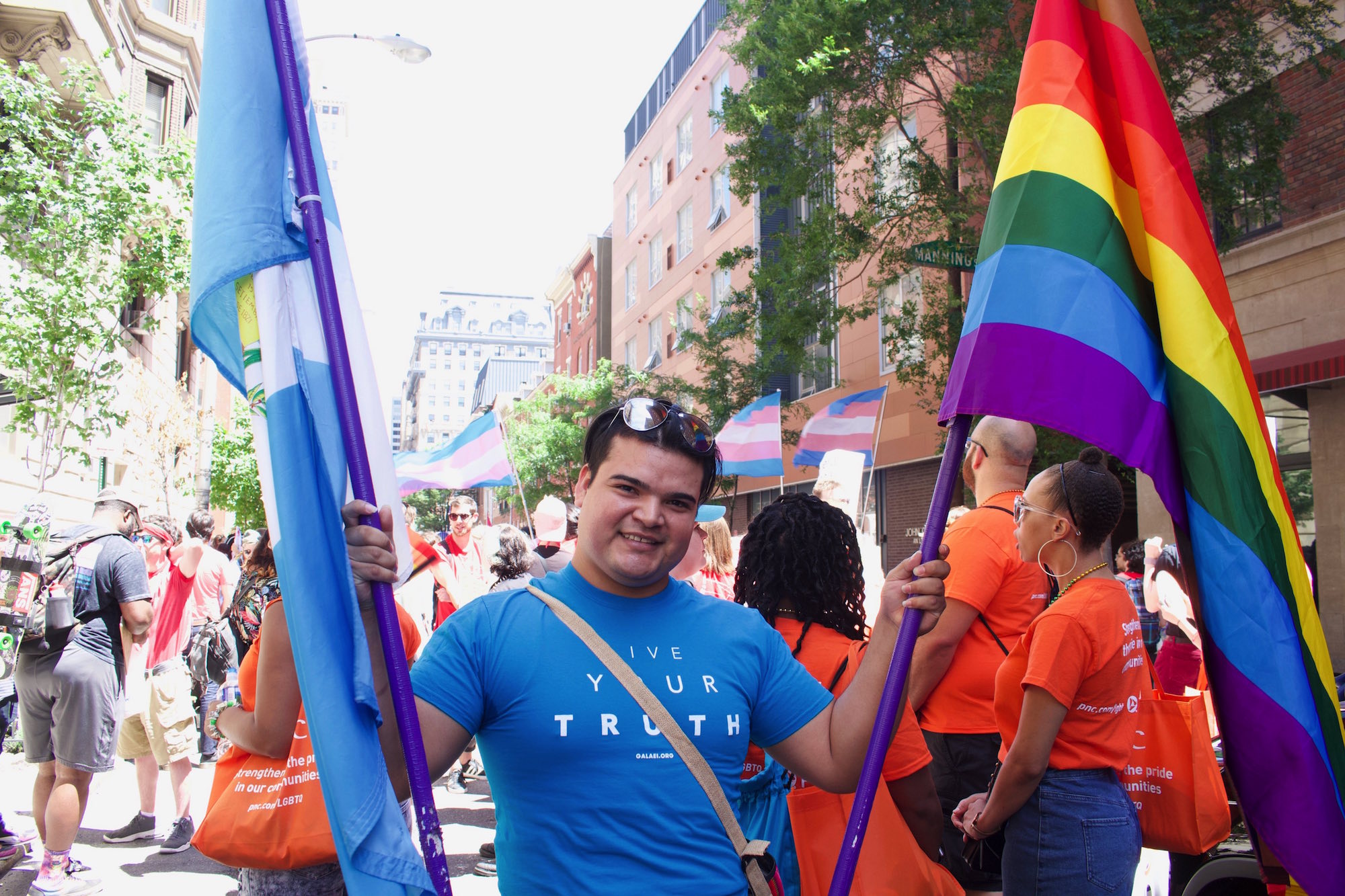
The struggle for equality during Pride Month: Is there a room for Latinx voices in Philadelphia’s LGBTQ+ spaces?
Several LGBTQ+ Latinx-indentifying people shared their personal anecdotes of how Latinx representation is lacking in queer spaces in the city.
June is now among us, which is national LGBTQ+ (Lesbian, Gay, Bisexual, Transgender and Queer+) Pride Month, and many local organizations and businesses adorn their logos with vibrant and flamboyant rainbows to showcase their allyship to the greater LGBTQ+ community.
But here in Philadelphia, a city with a long and ugly history of discrimination and racism, it begs the question, whose voices are really the ones being heard when talking about being LGBTQ+ and which demographics are being left out of these conversations?
Largely, it is a reality that the Latinx community and other communities of color that do not have equal representation in the dialogue when establishing safe spaces for LGBTQ+ people.
Despite Philadelphia being home to GALAEI, a historic nonprofit that specifically focuses on supporting LGBTQ+ communities of color, as well as other organizations focused on supporting LGBTQ+ individuals of color, many LGBTQ+ Latinx-identifying people feel as though more could be done to extend support and expand existing queer spaces for them.
Philadelphia’s racialized and discriminatory history has certainly imposed ramifications for LGBTQ+ Latinx people.
AL DÍA interviewed a number of LGBTQ+ Latinx individuals about the current resources and spaces available for them, and what can improve.
Karla, a Mexican-born Philly resident, said there was still not enough representation even in the spaces where members of the LGBTQ+ community gather.
“While there are more and more people of color showing up to queer events, the scene still needs to improve when talking about Latinx representation.” she said.
In his own experience, Marcos, a Puerto Rican-born local university student said he found his own Latinx LGBTQ+ community where he lives, but that’s the extent of the sense of belonging.
“I have not found anything similar to it outside of our bubble...the space reserved for queer people, the Gayborhood, becomes the place where queer white folks live because of the convergence of the race-sexuality-gender intersection,” he said.
Gabe, a lifelong Philadelphia resident of Mexican and Puerto Rican descent also said that they have seen some outreach for Latinx events, but more often, the call for Latinx representation often gets lumped in with broader pushes for Black, Brown and Indigenous voices in the LGBTQ+ community.
“The politics of skin color are at the forefront,” they said.
When it comes to race in the Latinx community, that can mean all shades.
RELATED CONTENT
“A true queer ‘Latinx’ space in Philadelphia could easily include: every shade of skin, a variety of political leanings, different cultures and different combinations of those cultures, and different languages,” said Gabe.
Despite that potential broad swath of people, all three still maintained the importance for LGBTQ+ Latinx-specific spaces.
“Although queerness transcends race, we still live in racialized bodies. And it is important for people who have trauma from racism to be in a safe space where they can be and celebrate every aspect of themselves.” said Marcos.
However, when asked whether they had heard of organizations in the city providing Latinx-specific LGBTQ+ spaces, all said they hadn’t heard of one.
GALAEI, located in North Philadelphia, began as one of the nation’s oldest Latinx LGBTQ+ support organizations, but has widened its reach in recent years.
The lack of awareness of these resources is indicative of larger issues regarding a lack of funding and willingness for the city to prioritize these demographics.
Pride Month is about celebrating and uplifting all LGBTQ+ voices. While significant progress has been made to ensure that LGBTQ+ people have a space at the table in Philadelphia, it is still exceedingly important to acknowledge our shortcomings, and how the community can ensure that anyone who identifies as LGBTQ+ has a safe space where their voice can be heard.
If you or a loved one is seeking LGBTQ+-specific support, there are several organizations that provide physical, mental and emotional support.
For support directed towards Latinx people and communities of color, click here for a link to GALAEI’s website.
For resources for LGBTQ+ youth, click here for a link to the Attic Youth Center’s website, and for general support for any LGBTQ+ individuals, click here for a link to the Mazzoni Center’s website.










LEAVE A COMMENT: